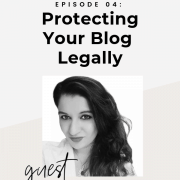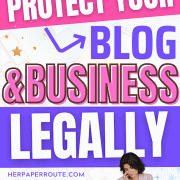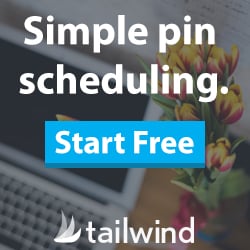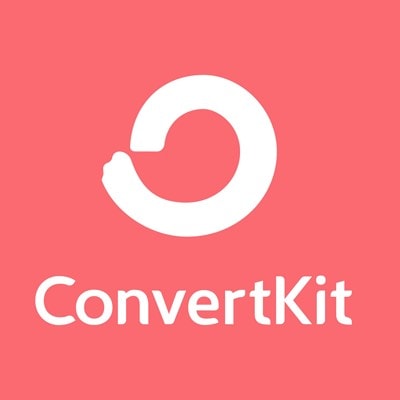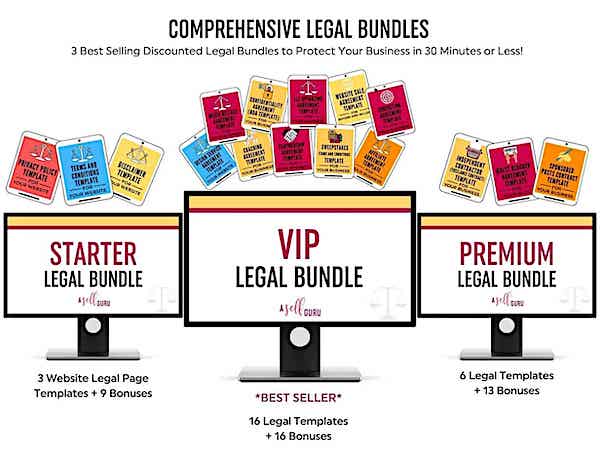Website Legal Page Templates: Legally Protect Your Business
How To Protect Your Business With Website Legal Page Templates. It is so important that as a business owner you take the necessary basic steps to legally protect yourself and your business.
Having the right website legal pages (legal pages for blog owners) is crucial.
As an affiliate partner of various brands and sponsored content, HerPaperRoute may earn commission on qualifying purchases. Disclaimer | Advertise With Us
From your blog privacy policy page to affiliate disclosures to GDPR, this is important info that every business owner and entrepreneur needs to know.
Lawyer Amira of ASelfGuru is on the HerPaperRoute Podcast today to answer your blogging legal questions, and educate us about the best website legal templates!
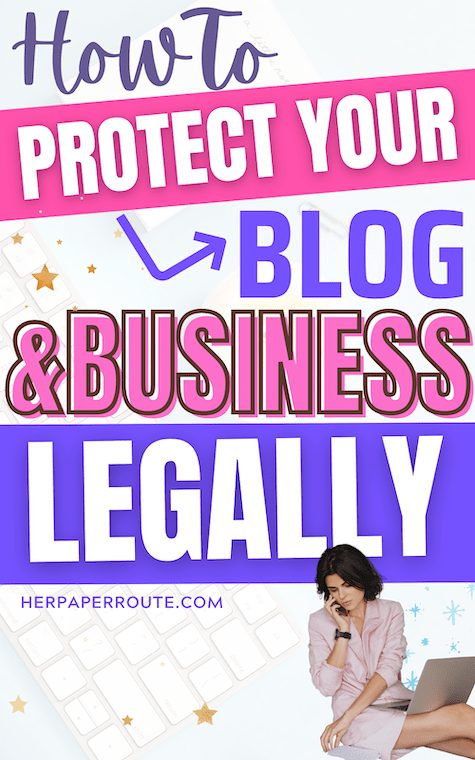
How To Protect Your Business With Website Legal Pages
Amira Irfan is a lawyer, a blogger and an entrepreneur. She has forged a niche market for her blog, and now earns over $60,000 per month, by offering a digital product that every blogger and website owner wants and needs.
Tune in and listen as Amira shares what we need to know and do as website owners to protect ourselves legally, in case of problems.
Because as it turns out, a lot can go wrong if you aren’t prepared!
How To Protect Your Business With Website Legal Pages
Show Notes Bonuses + Resources
Here’s how you can access the bonuses and resources that Amira and I talk about in this episode.
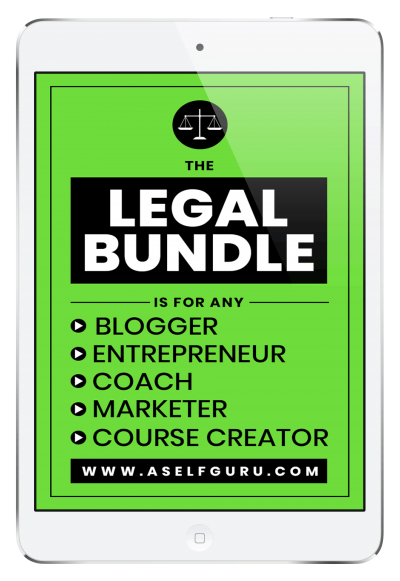
Amira’s Website Legal Page Templates
Templates for the 3 legal pages for your website, that Amira discusses in today’s episode:
- Privacy Page Template
- Disclaimer Page Template
- Terms And Conditions Page Template
- Best Deal: Bundle of all 3 templates (Privacy, Disclaimer + Terms) – Get it here
Other Contract Templates That Amira Offers:
Confidentiality Template – Don’t share any information or ideas about your business with anyone (even your friends) without protecting yourself first with a confidentiality agreement.
Sponsored Posts Template Contract – Use this contract if you work with brands or create any sort of paid content on your blog or Instagram.
Independent Contractor (Freelancer) Template – Do you hire freelancers? Virtual assistants? Web designers? Or are YOU the freelancer? You need this contract before you hire or take on any jobs.
Blogging Courses
Access to my free blogging course: here
Bonus! When you enroll in the free course, you will get a special $100 bonus, to enroll my the full, premium professional blogger course bundle!
Sponsor Bonus
My trade secret for bringing in blog traffic from Pinterest and Instagram, without having to manually pin and post there all day? Tailwind!
Tailwind is a Pinterest and Instagram scheduling tool that automates social marketing duties while exposing my blog to countless new audiences.
Today you can use Tailwind for free for a whole month when you sign up with the link below!
HerPaperRoute Toolkit
My Blogger And Entrepreneur Toolkit is a resource library of helpful tools, planners, courses, ebooks and more. Get your invite and access the toolkit for free here!
Does Your Business Have The Correct Website Legal Pages?
When I was a brand new blogger, I had no idea about all of these things such as privacy policies, terms and conditions or affiliate disclosures.
I’ll admit that I even used to use a free privacy page template that I found online, for my first blog!
Free privacy policy templates do not include all of the up-to-date laws and legal ‘mumbo-jumbo’ that you actually do need to have to be protected.
As Amira explained in the interview, there are many legal issues that can arise if you don’t have the proper legal information clearly stated on your website.
And these issues can happen if you don’t sell any products, don’t collect email addresses, or do any affiliate marketing. A lot of people don’t know that, and it’s really important!
Q. Welcome to the show, Amira. How did you get your start as an online entrepreneur?
Thank you for having me, Chelsea. I’ve been working full-time as a lawyer for more than eight years now, helping bloggers entrepreneurs with a wide variety of legal dispute disputes.
I’ve always been thinking about making a greater impact in the online world and kind of starting my own business.
So it was only natural for me to do that through a blog, and where I could incorporate my business and legal skills as well.
And part of the reason I really enjoy blogging so much is that before I became a lawyer, I was a teacher.
So I love teaching bloggers and entrepreneurs how to protect their online business legally, while also working with them one on one on how to expand their business, so they can become their own boss.
And so far, it’s been a very rewarding, awesome journey. And I’m just glad that I’m able to do it with my full-time job.
Q. When we say that you need to protect your website legally, what are we protecting it from? What could go wrong?
Well, that’s a great question. In a nutshell, you’re protecting yourself and your business from lawsuits.
So for example, a lot of things can go wrong, you know, you could get sued or fined by the Federal Trade Commission for not having a proper privacy policy on your website.
Or let’s say not abiding by other rules and regulations, such as not properly disclosing your affiliate links for the products and services you recommend on your website, or not properly disclosing that you writing a sponsored blog post or any other kind of endorsements that you receive.
And you could also possibly get into legal trouble and disputes with your readers and customers over your own products and services, and face copyright infringement lawsuits.
Those are very common.
And so as a lawyer who’s seen it all and been in court for over the years, I just know that how easy it is to get sued.
So you do want to make sure you follow the rules and you take the right action to protect yourself and your hard-earned income.
Because let’s face it, we work day and night over, you know, building our business and you don’t want it to be all taken away by a long, expensive lawsuit.
Chelsea: That’s so important. I think that the majority of people, in general, assume that taking the steps to protect themselves with legal help is going to cost them 1000s of dollars in legal fees, and you are doing an amazing job of making legal protection both affordable and accessible to the masses, by offering Legal Page Templates.
Q. What three things can all businesses do to protect their websites?
The three main things that all businesses really need on their website is legal pages. By legal pages, I mean, like having a privacy policy page, a disclosures and disclaimers page on your site, your terms and conditions which are also known as your terms of use and Terms of Service.
These three legal pages, make sure that you’re complying with the laws and also protecting yourself legally.
And you should have them on your site before you even launch.
And you’re right Chelsea, lawyers can be expensive. And that’s why people don’t go to lawyers, a lot of times, they just find other ways and cut corners to kind of have these pages done.
But that’s not an excuse for not making sure that your website is legally compliant.
If you can’t afford to hire a lawyer, then you should look into paid legal templates written by a lawyer.
With the paid legal templates, you get the same benefit and peace of mind of knowing that, hey, these templates are professionally written by a lawyer, but yet they don’t cost me an arm and a leg.
They’re a fraction of the cost! And you get the same quality work.
This is where I help tons and tons of entrepreneurs and bloggers because I sell all the legal pages that you need at a very affordable price.
So you don’t have to worry about not being able to afford a lawyer or resort to the free legal templates out there that are not comprehensive and don’t protect you.
Free legal page templates don’t actually cover you for anything.
There are tons of contracts that you need when you’re running a business. I offer templates for everything you need, in my legal store.
Q. What are the three biggest mistakes that you see bloggers making when it comes to legally protecting their website and business?
Chelsea, there are quite a few mistakes I see. And the most common ones are like number one, for example, people not knowing about copyright law and kind of taking other people’s images and content and just posting it on their website.
That’s a big mistake. That’s a big legal copyright violation.
So I see I see that a lot with the new bloggers who are not really well versed in the legal world, and they just make that mistake thinking “hey, I can just take any image from Google or anybody’s blog images!”
Do not take someone’s blog content, or even their legal pages. You can not just assume that you can just post it on your site.
Why you should never use free legal templates
I also see people not having proper legal pages as we talked briefly about the free legal template.
So they think, “I can just get a free legal policy from online and posted on my website.”
But they don’t realize that those are legally deficient. Those free templates don’t have the comprehensive provisions needed to protect you.
I personally audited quite a few of those websites that used those free templates. And I’ve shown how deficient they are.
They expose you to all kinds of legal liability and risk.
And the other thing I see is bloggers who do not even have legal pages at all! This is even more problematic, because a privacy policy is actually legally required by law to be on your site.
So I’m surprised sometimes to see bloggers who gave been blogging for a couple of months, and then they don’t even have any other legal pages.
Get ConvertKit & A Special Bonus From HerPaperRoute »
The last thing I would mention is just not using proper contracts when working with others in your business.
For example, let’s say you’re working on a partnership or sponsorship or any other kind of collaboration.
You want to have appropriate contracts in place with the other party to protect yourself legally and financially so you don’t get burned.
And whenever money is exchanged, you should always have a contract in place to protect your legal and financial interests.
Related: Sponsored Posts Template
Q. What is a privacy policy? And why would someone need one?
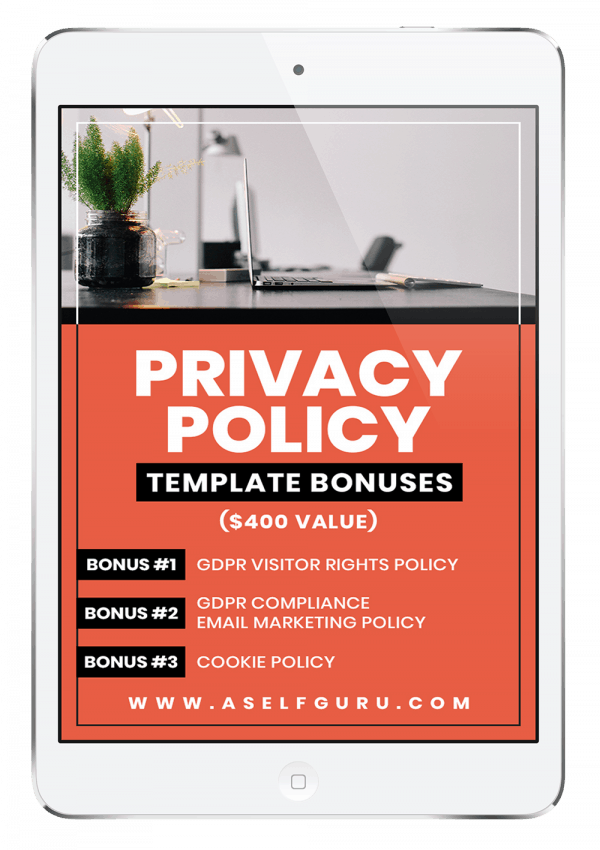
A privacy policy is a legal document that’s required by law if you collect any kind of personal information from someone that visits your website, and every website does collect some sort of personal information and that could be:
- someone’s name and email address (like when they subscribe to your blog or website)
- credit card information on your sales page when they make a purchase
- comments
- cookies on your website
- Google Analytics that you use
- And any data collected by plugins on your site.
These are just some of the examples that someone could enter the information.
Think about it: if I supply my name and email address to you, I want to I have the right to know how you’re going to use that information.
And what are you going to do with it?
And in what circumstances will it ever be disclosed to a third party?
So this is where the privacy policy is legally required.
Because it informs like what personal information you’re collecting from your visitors, and then how you’re going to use it.
It covers a lot of important topics like children’s privacy, cookies, comment policies, GDPR, you know, third-party links in use.
Basically, you always want to make sure that you have a solid comprehensive privacy policy on your website.
Q. What about bloggers who use affiliate links on their websites?
I think anyone who’s visited a blog has seen that little blurb mentioning that the website earns a commission from affiliate sales, which is needed.
That blurb is actually a disclosure that you need to give any time you share affiliate links.
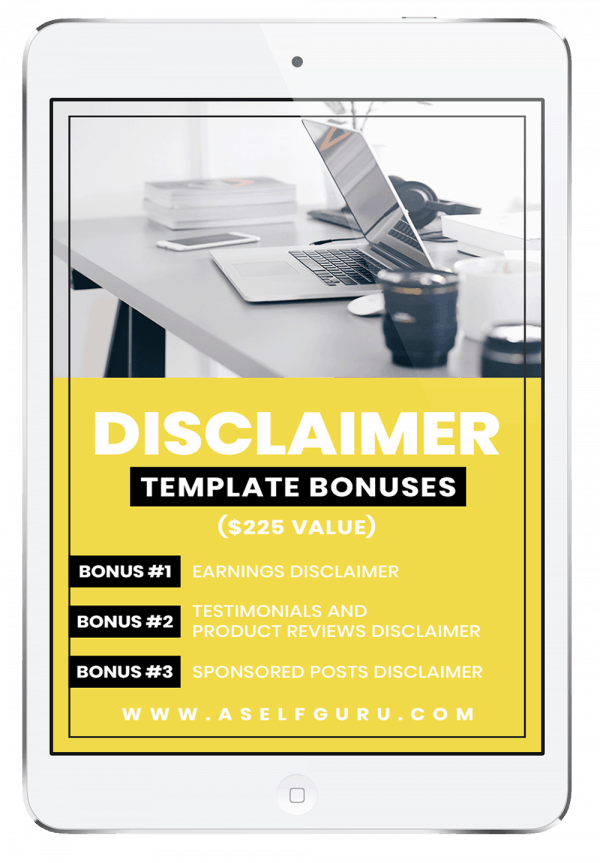
And that’s a requirement legal requirement that you need to fulfill because, again, the readers need to know that what kind of financial incentives you’re receiving for the products and services that you’re promoting.
This way, you’re not misleading your readers.
They need to know that you’re being transparent, and you’re saying, “Hey, I earn a commission, I am going to receive some sort of financial gain.”
But the blurb alone isn’t enough. In addition to that, you do need the full disclaimer page.
The disclaimer page serves a different purpose, it takes it to the next step.
Now, you want to have a disclaimer page to limit your liability for all this stuff that you’re promoting.
Because you don’t want to be liable for other people’s third-party products.
You want to have a disclaimer that protects you from legal liability. Such as, saying that nothing on your website can be construed as advice.
And that you’re also encouraging your readers to do their own research their own due diligence, instead of just completely relying on your stuff, and later coming after you, if something goes wrong.
So there’s a potential for a lawsuit.
This is where a disclaimer page puts a lot of information and legalese that reminds your users that, hey, you are responsible completely for your own actions. I’m just supplying the information. But that doesn’t mean that everything on my website is accurate or complete.
So this way, you’re protecting yourself from that kind of legal harm.
Q. The third legal page that you talked about is a Terms and Conditions page. If a blogger doesn’t sell products, do they still need a page for that?
Great, great question. So the Terms and Conditions page is not legally required.
But it is legally very important. And many bloggers do overlook them… until they get into legal troubles!
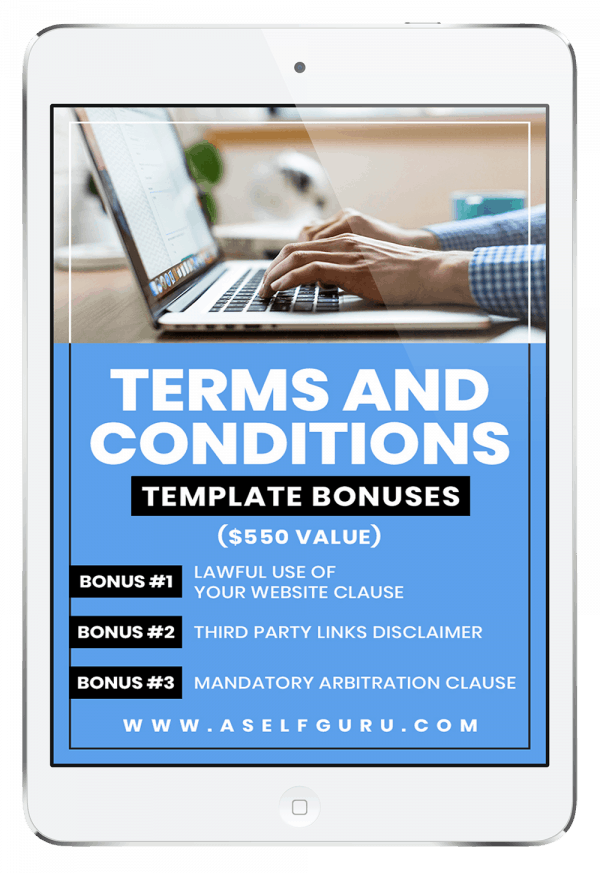
The brief answer to your question is yes, you do need it even if you don’t sell any products and services because they serve a lot of different purposes.
So first, we talked about the Privacy Policy page, we talked about the Disclaimer page, but then you need this third Terms and Conditions page, because number one, they serve as a binding legal contract between you and the users of your website.
But you also need it to cover topics like ‘what is the lawful use of your website?’
Think of terms and conditions as your website rules.
So you want to make it clear that, hey, these are my rules and regulations.
This is what I allow, this is what I don’t allow, and these are my intellectual property rights.
This is where you make it clear to your readers how they are permitted to use your website and products, or how they’re not permitted to use that it.
And also, most importantly, your right to terminate someone’s use.
You want to be able to make it very clear that if someone is not abiding by your rules or regulations tomorrow, you can just terminate their right to use your website.
And another thing people don’t think about is, if there is a legal dispute, where are you going to resolve it?
So these are a lot of important considerations and factors that you need to think about when you have a Terms and Conditions page.
Finally, it just legitimizes your business and protects you from all kinds of potential legal issues down the road.
Together these 3 legal pages for blog owners are essential. The legal bundle contains templates for all three of these pages.
Chelsea: That totally makes sense. I think a lot of people who are listening are going to be like “oh, wow, I see why the free templates don’t really cover me because there’s so much more that goes into it to really actually protect yourself, because so much can go wrong.” And when you have these bases covered, you just have that peace of mind.
Q. What do you find to be the biggest hurdle as a blogger, balancing your blog alongside your full-time law practice?
You know, I was waiting for this question.
Because it’s like finding the time to do everything I want to do, that is my biggest hurdle.
There are so many things I want to do. And when it comes to blogging, there’s so much to do, and I want to always implement new things.
It’s just finding the time to do everything and balancing that with my full-time job.
This is very challenging at times. Because, you know, in the beginning, you’re running a business all by yourself, and there’s so much to do!
Marketing, creating products, managing a Facebook community writing blog posts, social media, etc…
The work just never stops. And I feel like, I’m always working around the clock.
Even when I’m on vacation, I’m not fully unplugged, and I have customers to respond to I have emails to handle and things like that.
I feel like even if you outsource or hire help, there’s still tons to do, because you still have to oversee and make sure everything is working properly.
For me, it’s really just finding the time and creating that balance.
I like to think I’m very disciplined, I’m very organized, but still, my job takes up most of the valuable hours of the day.
So I don’t have the luxury of time on my hands to just do whatever I want to do with my blog at all times of the day.
I’m kind of stuck with working nights or weekends for the most part.
But nevertheless, you know, I’m not complaining, I think the pros of being an entrepreneur blogger are just really outweighed the cons, in my opinion.
Q. Time is my biggest struggle, too. What would you say you love most about blogging?
I really love the autonomy of being able to work from my home and make money in my sleep, the passive income.
But also the most important thing for me is making a valuable contribution in the lives of others through my blog, as I’m able to reach a greater audience.
Through my coaching services, my legal templates, my blog, my products, all of that, I know, at the end of the day, I’m solving someone’s problem.
So for me, that is huge. And that’s very satisfying.
When I receive awesome feedback from others letting me know how my templates have really helped them, and they can sleep better at night.
So I just think that that makes this entire blogging thing so meaningful and worthwhile.
Also, it’s been amazing collaborating with entrepreneurs like yourself, Chelsea and others.
Gaining that support of the blogging community. I feel like that has been instrumental in my blogging!
Q. Agreed! The blogging community is pretty cool. And you get to meet so many interesting people who are excited about their work.
Yeah, it is. Who would think that there are so many bloggers out there? But wow, it’s a close-knit community.
Chelsea: Anyone who’s been blogging for a while, like you or I, even just for a few months, you’ll start to notice that all of the bloggers who are guest posting on each other’s blogs and in each other’s Facebook groups and supporting one another. And there really is that sense of community. It’s collaboration over competition, which I firmly believe in.
Q. For listeners who are thinking about starting a blog, what words of advice would you give someone just starting out?
I would say just go for a take action and start today.
Don’t doubt yourself and don’t overthink it. Because I know a lot of people get bogged down in that.
When I started my blog, initially it was going to be a hobby.
I started it in just like seven days while working full time as a lawyer.
So if I can do it, I feel like anybody can! It’s only because I didn’t overthink it. I just put aside my perfectionist nature, and I just went for it.
Because as a lawyer, I am a perfectionist, but as a blogger, I can’t be because there’s so much to do.
If you want to get things done, you have to put it all aside and just go for it.
Because what do they say, done is always better than perfect, right?
Don’t lose sight of the big picture, but don’t get stuck in the little things.
Invest in some blogging resources, like Chelsea’s blogging programs.
Look at other creators too, and just in the beginning, get that help from someone who’s already built a successful business because that’s going to make your life easy.
You don’t have to try to figure everything out on your own and then give up because you’re frustrated or confused, you know?
I would say get that help and don’t struggle on your own and just go for it.
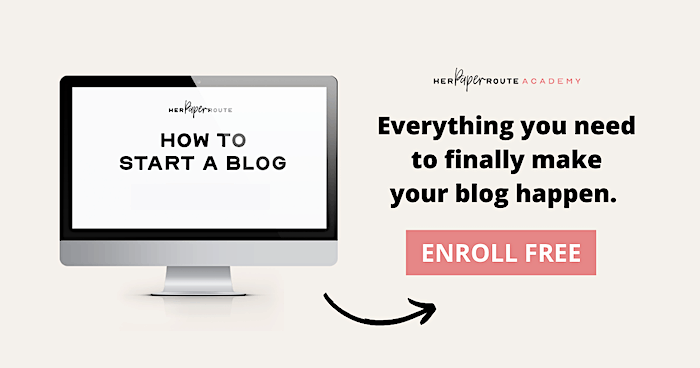
Related: Ready to start your blog today? Here’s free access to HerPaperRoute’s Blog Startup Course!
Chelsea: I want to say how impressed I am with your outreach strategy, how you have managed to pitch your affiliate program and guest posts to bloggers so well.
Q. What advice would you give bloggers who want to get their name out there and get their guest post pitches accepted?
Well, thank you, Chelsea, for your kind words. I’m all about networking and fostering new relationships.
Because blogging can be lonely, I’m sure you can relate to that.
And I don’t like to work in a vacuum.
As a lawyer, I love interacting with my clients solving their legal problems. In the same way, I love connecting with fellow bloggers and providing legal solutions to them.
So my first piece of advice for anyone getting they’re trying to get their name out there is to create valuable content, whether that’s your blog posts, your product, or service, or anything else that you offer, it has to speak for itself.
Because let’s face it, at the end of the day, people recognize you by the quality of your work.
So you have to make sure you don’t let them down. And you know, so provide that excellent customer service have a product that’s really outstanding.
Related: How To Build Your Authority & Backlinks Through Guest Posting
Q. That is such great advice! Where can our listeners find more about what you do?
Okay, so you can always go to my website, ASelfGuru.com to learn more about my products and services.
There are three ways that we can work together:
- You can always look into the legal bundle, to make sure that you’re blogging legally.
- You can book a coaching call with me to get your legal questions and business questions answered
- Feel free to reach me in my Facebook community. We have a very active Facebook community of go-getters and entrepreneurs that would love to connect with you and have you.
How To Protect Your Business With Website Legal Page Templates – Conclusion
Fortunately, you can easily make your website legal by using a template of website legal page templates that include all of the information you need to protect yourself.
Get a copy of Amira’s legal page bundle which includes a template for all 3 website legal pages that your business needs.
These fill-in-the-blank legal pages for blog and business owners were drafted by Amira herself, who is a lawyer and knows exactly what information you need on your website to be legally covered.
You will be able to sleep easy knowing that your business’s most essential legal needs are in order.
I hope you’ve enjoyed listening to today’s podcast episode. Thanks for joining us today!
More Website Legal Pages Resources
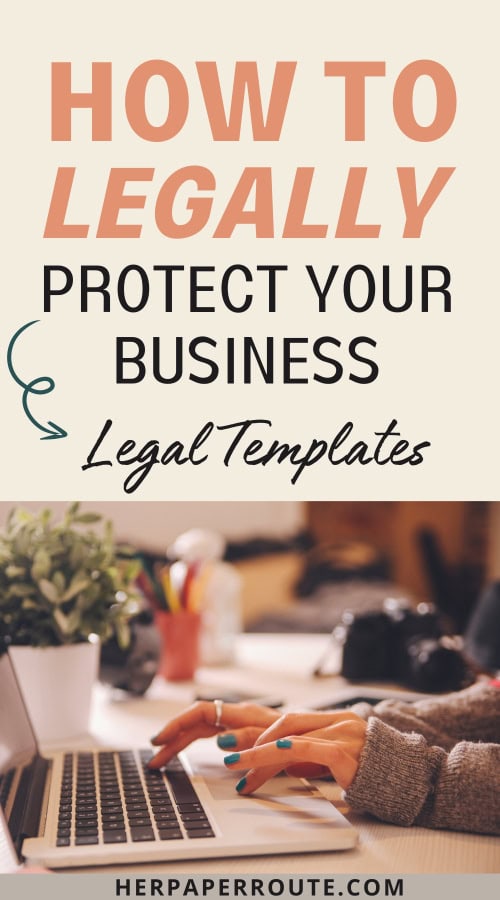
Follow along on Instagram!




